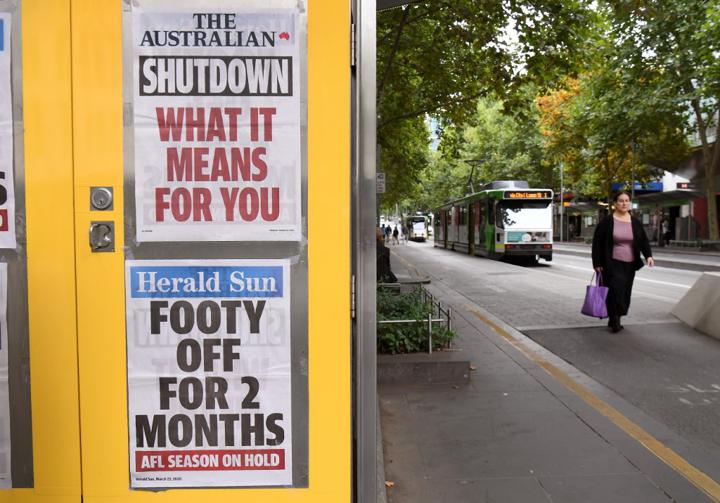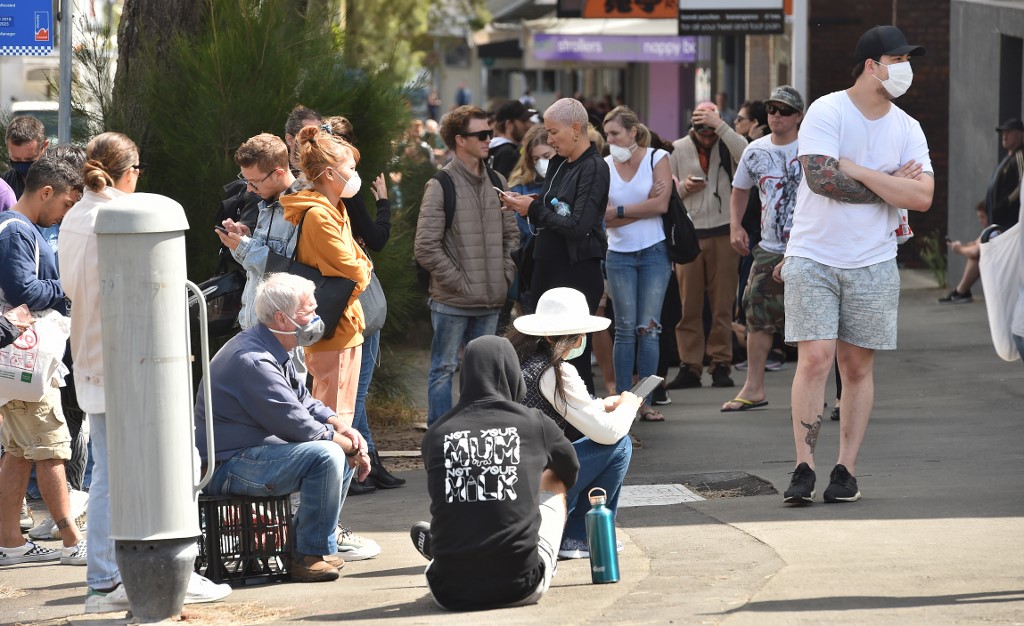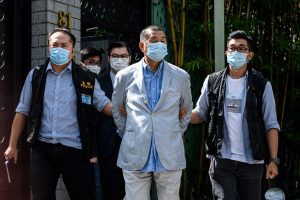SYDNEY: Jobless Australians flooded unemployment offices around the country on Monday as Prime Minister Scott Morrison warned the viral pandemic would cause an economic crisis akin to the Great Depression.
After a record 29 years of economic growth, Australia is poised to spiral into recession as the global coronavirus outbreak wreaks havoc on the country’s economy despite a A$189 billion (US$109 billion) government relief package.
In scenes not seen in Australia for decades, queues stretched around the block at unemployment offices around the country as the forced closure of pubs, casinos, churches and gyms began at midday on Monday.
An online portal for government services also crashed as jobseekers rushed to register for income support payments, which have been temporarily doubled by A$550 a fortnight to help people cope with the coronavirus crisis.
With hundreds of thousands of jobs on the line, Morrison told his compatriots they faced an economic crisis “the likes of which we have not seen since the Great Depression”, referring to the global financial meltdown in the late 1920s and 1930s.
“They are lining up at Centrelink offices as we speak – something unimaginable at this scale, only weeks ago,” he told Parliament. “They have lost their jobs, many, and we know many more will. This is the biggest economic shock our nation has faced in generations.”
Services Australia, which operates the social welfares offices known as Centrelink, urged people not to visit physical locations unless there was a “critical need” to do so.
After a key government website crashed, minister Stuart Robert initially claimed a demand surge had been worsened by hackers attempting a distributed denial of service (DDoS) attack. He later told Parliament the DDoS alarm had in fact been set off by almost 100,000 people trying to access the site at once.
Ahead of closing non-essential services, Australia had already shut its borders to international arrivals, while some interstate borders have been effectively shuttered and all non-essential travel is banned.
Morrison has warned the measures would remain in place across the country for up to six months, with stricter rules looming in an effort to contain the spread of coronavirus.
‘Toughest year of our lives’
He said the once-in-a-100-years event meant that 2020 would be “the toughest year of our lives”.
Australia’s benchmark ASX 200 has lost 38% on coronavirus fears since its peak in mid-February, falling on Monday to lows not seen since November 2012.
Seven people have died from the disease in Australia, which has a death rate of just 0.44% compared to over 4% in countries like the United States, Britain and France.
The nation has recorded more than 1,600 cases of Covid-19, with infection rates accelerating in the most populous states.

On Sunday the government announced a US$38-billion spending plan to limit the economic damage from the coronavirus pandemic, as citizens were told to cancel domestic travel plans to slow the virus spread.
Treasurer Josh Frydenberg said the A$66 billion announced on Sunday brought government and central bank measures to support the economy to A$189 billion – nearly 10% of gross domestic product (GDP).
“These extraordinary times require extraordinary measures and we face a global challenge like we have never faced before,” he told reporters in Canberra. “Today’s announcement will provide hope and support for millions of Australians at a time when they need it most.”
Cash subsidies
Small businesses and non-profits will receive cash subsidies of up to A$100,000, while unemployment payments will be temporarily doubled and pensioners will receive A$750 in cash.
Workers whose income has fallen by at least 20% due to the coronavirus outbreak will be able to access their retirement funds early, with those facing hardship allowed to withdraw up to A$20,000 over two years.
Frydenberg said the economic shock was now expected to be “deeper, wider and longer” than was believed just 10 days ago and additional measures would be required.
Prime Minister Scott Morrison said the government was also “moving immediately” to recommend against non-essential travel, warning further measures were imminent to deal with localised outbreaks. He said work-related trips, the transport of essential supplies and travel on compassionate grounds could continue but people should cancel any other travel plans ahead of the upcoming Easter school holidays.
“More stronger measures will be coming and they will be coming in more localised areas to deal with outbreaks,” Morrison said.
Australia has already sealed off its borders, putting in place an unprecedented ban on entry for non-residents in the hope of stemming the rise of Covid-19 infections.
Four states – the island of Tasmania, South Australia, Western Australia and the Northern Territory – have also implemented a 14-day self-isolation period for all visitors.
Rottnest may be quarantine zone
Announcing the state’s border closure on Sunday, Western Australia Premier Mark McGowan said he was considering using Rottnest Island – a popular tourist destination and former Aboriginal prison site – as a quarantine zone for people who refuse to self-isolate or are unable to do so.
New South Wales and Victoria states on Sunday announced a shutdown of non-essential services, with supermarkets, pharmacies and petrol stations among those businesses that are exempt.
AFP
























